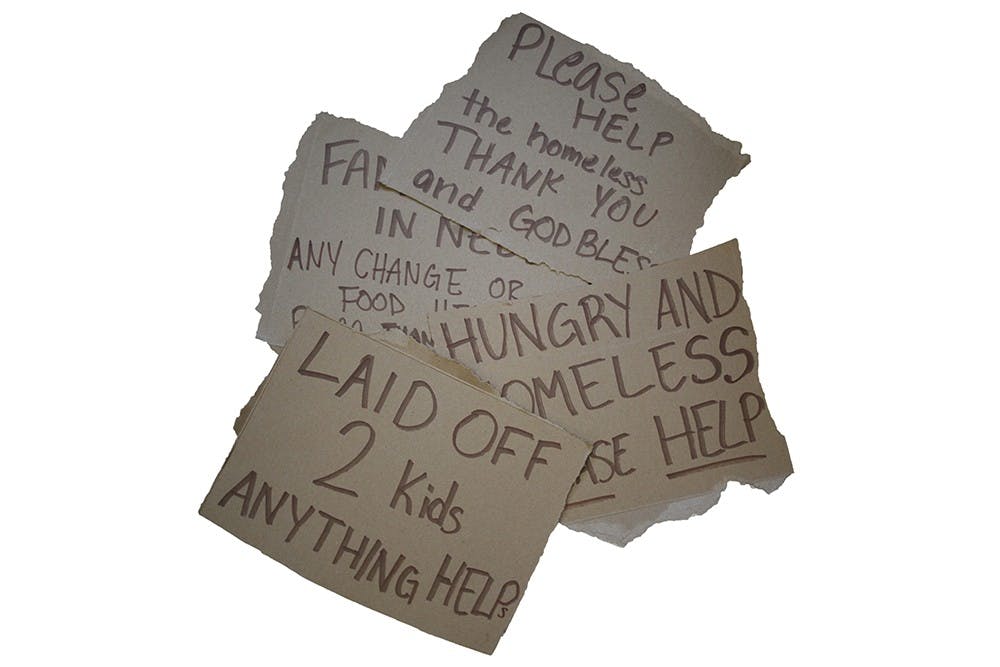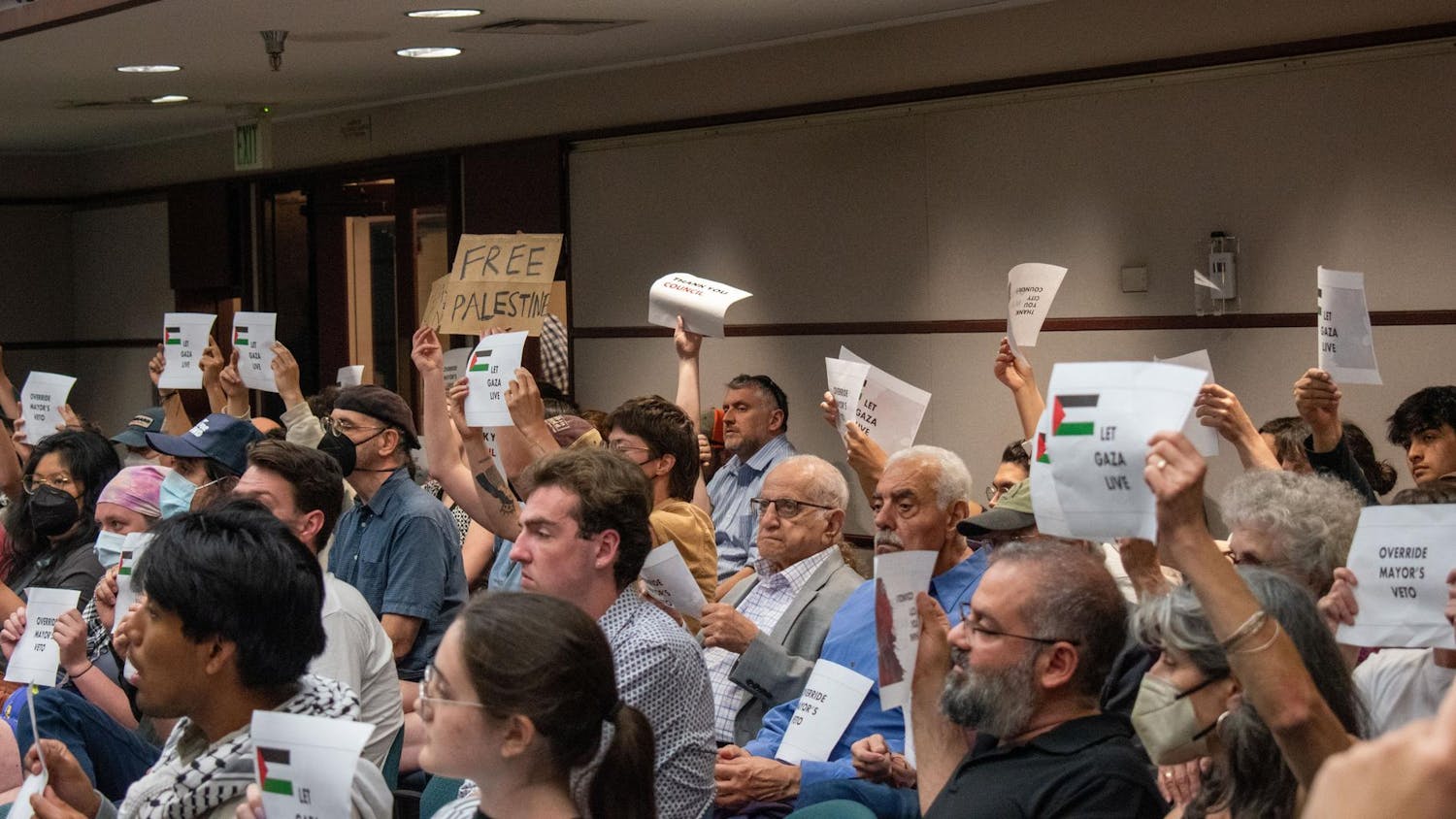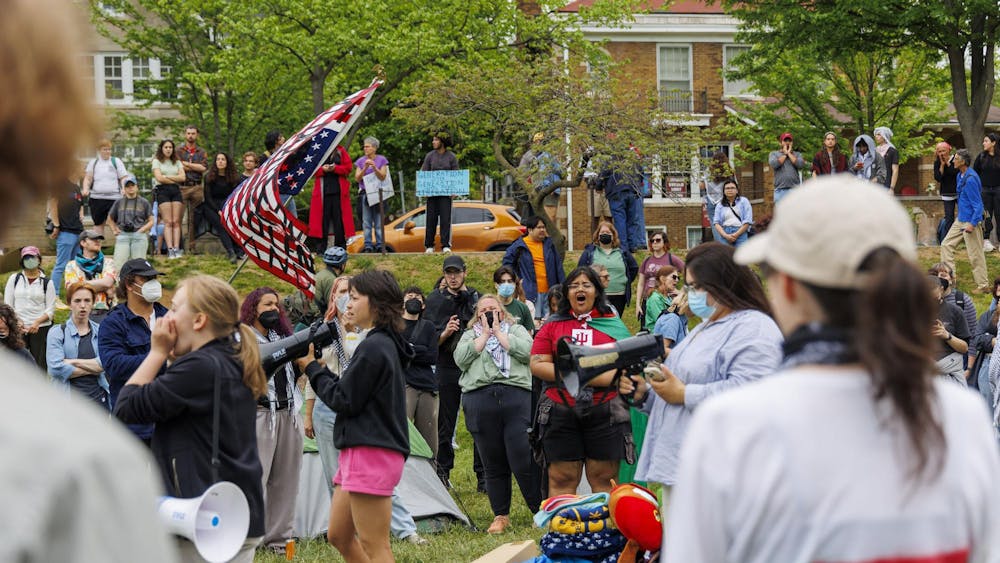Susan Bright, the co-owner of Nick’s English Hut, wanted to address criminal activity on Kirkwood Avenue.
When people read her letter, however, they took away a different message.
Her note, titled “Bum Commerce on Kirkwood,” went viral in the Bloomington community, sparking outrage among customers and business owners committed to advocating for the homeless.
“As many of you know, our traffic of panhandlers and people with no other place to call home has increased dramatically over the past three years,” the letter begins. “With this type of activity, it has also increased petty theft, crimes and drug dealings.”
The message was sent to many business owners on Kirkwood and in the surrounding area. The letter was used to invite them to a meeting on June 4, at which they could discuss how to address the issue of panhandlers on the street.
“Gregg and I honestly believe that if we ALL address this ‘Bum Commerce on Kirkwood’ by having the same knowledge and work towards the same common goal, we will prevail at pushing this type of activity away from our front doors and revive OUR commerce in a positive, healthy direction,” the letter said, referring to Gregg Rago, Bright’s husband and co-owner of the restaurant.
Though many business owners did attend the meeting, according to Bright, representatives from at least one Bloomington staple boycotted the gathering.
“We reject the disgusting, classist language used to describe our neighbors whose housing status is created by the gentrifying efforts of the businesses, police and city officials,” a statement posted on Boxcar Books’ Facebook page reads. “The language of the letter is indicative of the shameless social cleansing employed by such oppressors.”
About 200 people have liked this post, and almost 150 have shared it.
“I was surprised in the sense that I was disappointed that the content was taken the wrong way, but I understand why it was perceived how it was,” Bright said. “I’m actually excited that more people took notice because I think that one person, one business, can’t do much, but if we have hundreds and thousands of people aware of the situation and working towards a common goal, that’s good.”
Bright clarified her goal is to let business owners know their rights with respect to panhandlers and work with city council to establish more stringent panhandling laws for the city.
According to Rago, the current Bloomington panhandling ordinances state panhandlers cannot be at public transportation stops, 20 feet from an ATM, or panhandle after dark and multiple panhandlers can’t be asking for money in the same place at the same time.
“Law enforcement officials can only do so much,” he said. “It’s like herding cats — you make a move, they’re just going to come back.”
The regulations he thinks need to be stricter have to do with public intoxication.
“Indiana state passed an amendment to the public intoxication law in 2012, which basically added a gray area to the public intoxication law,” Rago explained. “The law states now that someone who is publicly intoxicated has to be a danger to themselves or others for law enforcement to act. When this law passed, there’s a criminal element that came with it. Now put yourself in one of these street people’s positions. Now they feel empowered and entitled to do anything they want.”
Rago remembered when someone passed out in the flower bed in front of Nick’s, and police were unable to make the man move.
He also remembered when a customer, accompanied by his five-year-old son, was shown the blade of a knife after a man on the street asked them for spare change.
He and Bright no longer allow their employees to take the trash out alone, afraid of what might happen in the dark alley at night.
The representatives of Boxcar Books argue arresting people for actions like these only helps to escalate the cycle of poverty and criminality.
“Crime, a social constructed phenomenon dictated by capitalism, white supremacy and other oppressive forces, is used by Bright to dehumanize people on the street,” the post reads. “This criminalization of poverty results in the mass incarceration of the poor, supporting state violence and dissolving community.”
Even so, Rago and his wife plan to meet with a city council member June 10 to discuss the next steps that should be taken.
“I’m an ultra left-wing liberal guy, but this has gone way too far,” Rago said. “If we get enough money to invest in programs like shelters and if that can make a difference, that’s great. We’re willing to help, but the criminal element needs to be eliminated.”
Bright and Rago hope more people in the community will get involved in their efforts to reduce crime on Kirkwood.
They hope to speak with the mayor’s office, city council members and even employees of Boxcar Books.






